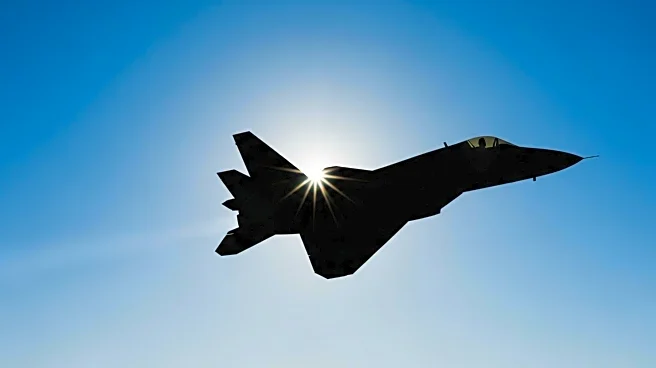What's Happening?
European defense companies are projected to experience substantial revenue growth from European customers, with an average annual increase of 10.5% to 11.5% over the next decade. This growth is driven by countries committing to NATO's 2035 spending targets, according to a report by Rothschild & Co. Redburn. The report highlights that countries with historically lower defense spending, such as Germany, and those near perceived threats like Russia, are expected to see the fastest growth. European Union countries have already increased defense spending by 19% to a record €343 billion in 2024, with further increases anticipated. The backlog for defense companies has grown significantly, indicating a strong demand for military equipment.
Why It's Important?
The projected growth in the European defense industry is significant as it suggests a shift in global defense dynamics, with Europe potentially outpacing the United States in defense spending relative to GDP. This could lead to increased investment in defense technologies and capabilities, particularly in air and ground defense, drones, and counter-drone technologies. The expansion of the defense industry may also stimulate economic growth in Europe, as countries reinvest taxpayer money into domestic economies. However, the funding challenge remains acute for countries with high public debt, and public support for increased defense spending is not guaranteed.
What's Next?
As European countries continue to increase their defense budgets, the industry is expected to see a rise in order intake, translating into substantial growth in the coming years. Joint ventures and mergers and acquisitions are likely to play a crucial role in capturing a larger share of the growing procurement budget. The focus will be on developing critical capabilities such as air defense, ground defense equipment, and drone technology. However, the industry may face challenges if public sentiment shifts against rearmament or if geopolitical tensions ease, potentially leading to pricing pressures and changes in procurement strategies.
Beyond the Headlines
The rearmament drive in Europe could face resistance from the public, especially if it involves trading social security for defense security without a perceived imminent threat. Future elections may test the resolve of European populations, with potential regime changes impacting defense plans. Additionally, the end of Russia's war in Ukraine could introduce pricing pressures as battle-proven products enter the market at competitive prices. European defense companies may need to adapt by diversifying their offerings and forming strategic partnerships to maintain their market position.











